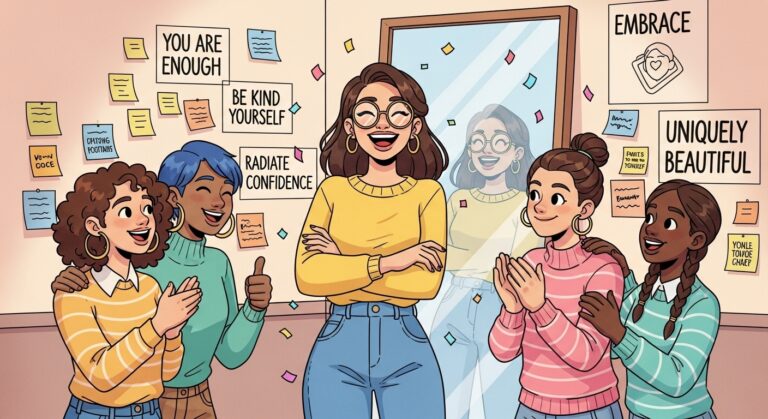In a quaint apartment nestled among the bustling streets of a university town, a young couple navigated the complexities of life, love, and self-image. Ryan, a dedicated 24-year-old working from home, shared space with his girlfriend, Lena, a vibrant 23-year-old pursuing her master’s degree. Their daily routines intertwined seamlessly; mornings were filled with the soft sound of coffee brewing, while afternoons were often punctuated by the clatter of keyboard strokes.
Lena was committed to her studies, attending classes that often stretched into the early afternoon. Yet, her academic pursuits came with a price. Each day, she donned her contact lenses, a necessity for her visual clarity in the lecture halls. However, as the sun dipped below the horizon, her eyes began to protest. The contacts that served her well in the daylight turned into tormentors by evening, leaving her with red, irritated eyes that begged for relief.
Ryan watched with a mixture of concern and helplessness. He noticed the pattern: Lena would return home from class, her eyes bloodshot and weary, craving the comfort of her glasses. The moment she slipped them on, her features softened, a serene beauty emerging that only her glasses seemed to accentuate. But soon enough, the clock would strike five, and with it, her self-consciousness would take over. As evening video calls loomed, Lena would retreat to the bathroom, swapping her glasses for contacts once more, determined to hide behind a façade that left her vulnerable to the very discomfort she sought to escape.
“Why don’t you just wear your glasses for the call?” Ryan gently suggested one evening, watching as Lena struggled to keep her eyes open. “You look fantastic in them.”
“No, I can’t,” she replied, her voice tinged with frustration. “I just feel so… unattractive. It’s silly, I know, but I can’t help it.”
Ryan’s heart ached. He wanted to help her see the beauty he saw—how her glasses framed her face, how they were part of her unique charm. He understood the societal pressures that often dictated perceptions of beauty, but he also recognized the toll it took on Lena’s health. The cycle of contacts and glasses wasn’t just a nuisance; it was a battle against herself.
One evening, after another long day of staring at screens and enduring the discomfort of her itchy eyes, Lena threw her contact case down in frustration. “I can’t keep doing this!” she exclaimed, exasperated. “Why can’t I just look good without feeling like I’m sacrificing my comfort?”
Ryan took a deep breath, a plan forming in his mind. “What if I helped you?” he proposed cautiously. “What if, just for a week, I hide your contact lenses? You’d have no choice but to wear your glasses. You might find that they’re not as awful as you think.”
Lena’s brows furrowed in confusion. “Ryan, that sounds… manipulative.”
“No, no! Hear me out. I want to eliminate the option of contacts for a bit. Just think of it as an experiment. You might discover that you can feel confident in your glasses, and I’ll be here to support you through it.”
Lena contemplated his suggestion, her mind racing. At first, she was hesitant; the idea of being without her contacts felt daunting. But eventually, she found a spark of curiosity. “Fine. A week. But if I’m miserable, I’m getting my lenses back!”
The next morning, Ryan executed his plan, carefully tucking away Lena’s contact lenses where she couldn’t find them. With a mix of anxiety and excitement, she slipped on her glasses before heading to class.
As the days unfolded, Lena faced her fears head-on. Initially, she felt out of place, her insecurities gnawing at her confidence. But as she navigated her classes and interactions with peers, something began to shift. She received compliments she had never expected—friends and classmates remarked on how her glasses accentuated her features and gave her an air of sophistication.
Ryan cheered her on from the sidelines, reminding her of how beautiful she truly was, with or without lenses. Each evening, during her video calls, she fought against the urge to remove her glasses, reminding herself of the encouragement she received. Slowly but surely, the irritation in her eyes faded, replaced by a newfound sense of self-assurance.
On the sixth day, Lena surprised Ryan as she entered their shared living space with a bright smile. “I think I’m ready to give my contacts a permanent vacation,” she declared, her confidence radiating. “I’ve learned that I can feel beautiful in my glasses, and I don’t want to go back to that cycle of discomfort.”
Ryan’s heart swelled with pride. “I’m so proud of you, Lena. You’ve embraced your true self.”
With a newfound understanding of self-acceptance, Lena decided to share her journey with her friends. She hosted a gathering, where she encouraged others to embrace their insecurities and redefine beauty on their terms. The evening was filled with laughter, stories, and a sense of camaraderie as everyone shared their struggles and triumphs.
In the end, Lena learned that beauty wasn’t defined by societal standards but rather by the confidence and authenticity she exuded. The glasses that once felt like a burden transformed into a symbol of her journey toward self-love.
And as for Ryan, he realized that sometimes it takes a little nudge—and a week without contact lenses—to help someone see themselves for who they truly are.
—





0 Comments